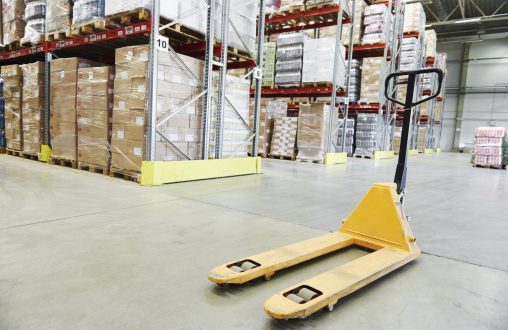Lift Trucks Receive New Approved Of Practice and Guidance
Everyone needs to keep abreast of new developments with workplace health and safety regulations. Without proper compliance, of course, an organisation or business can fall foul of the law and, in some cases, serious injuries and fatalities can occur.
Nowhere is the more evident than with driver operated lift trucks where, unfortunately, fatalities among UK workers are still a regular reality. Fork lift trucks, and some other types of lifters, are covered by the Health and Safety Executive’s (HSE) guidance which was first published in 1988. This sets out how the government considers lift trucks can be used safely within industrial settings. However, new guidance came into place as of March 2013 and many who use fork lifts in the workplace need to be made aware of the revisions and what measures they need to take to remain using them lawfully.
HSE revised their ‘Approved Code of Practice and Guidance’ to bring it up to date with technological developments in the industry. This is now the third edition for rider operated lift trucks, meaning that if you have the second revision it is now out of date. Filed under HSE’s L coding for legal reference documents, the guidance is aimed at employers and those responsible for the workplace safety with the operation of such trucks.
It is also designed to be read by people in control of worksites, such as foremen, self-employed people who use trucks, managers in the warehouse and logistics industries and supervisors. Also referred to as ACOP, the guidance offers an outline of the main legal requirements relating to lift trucks.
Some of ACOP’s text relating to the approved code of practice remains unchanged from previous editions but there are changes to be found elsewhere. It offers new guidance for trainers of staff operators who use rider operated lift trucks for stacking – a typical warehouse application for a fork lift. ACOP also puts forward some of the same guidance published in HSG6 – Safety In Working With Lift Trucks – but replaces and supersedes sections of it.
For instance, the new code deals with information about advancements in certain types of lift features. It also offers guidance on the safe use of lift trucks, particularly on how to protect pedestrians in the same area as the lift truck operator. Lastly, the document provides valuable guidance on the importance of regular maintenance of the equipment through a routine inspection regime.
Fork lift trucks are not the only equipment covered under the revised edition of ACOP. Other types of truck included are power pallet trucks, industrial reach trucks, and industrial counterbalance trucks. On top of this variable reach trucks, sometimes called telehandlers, and side loaders are included. Any business using these types of lifting mechanisms needs to be aware of the new guidance and obtain a copy.
HSE has other guidance material for operatives and managers who are in businesses that use these and other types of lift trucks. It is well worth knowing about these, too. For instance, HSE has separate and additional guidance notes for lift trucks that are used in proximity with flammable material. This guidance gives further details of emergency procedures and what sort of permits to work are required to continue operating within the legal framework. Additionally, HSE has material specifically aimed at trainers of lift truck operatives, which is essential reading material for managers and supervisors. This goes into further detail and specifies how to keep training records, monitoring systems and refresher training. Like the Approved Code of Practice, these documents are updated once in a while, so even if you have them already it may well be in your interests to check that all the publications you have are fully up to date.
What are the different types of forklifts? Top 5 Uses for a Cherry Picker





